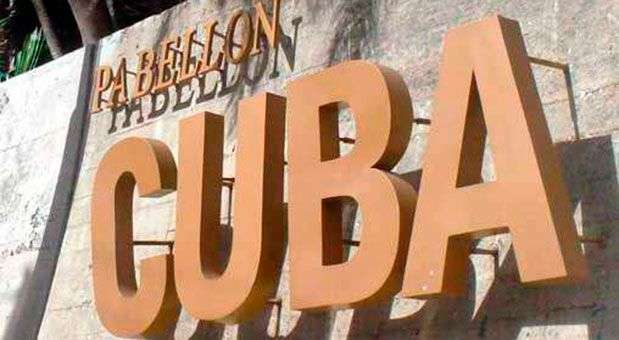“We live working on requests and, thanks God we do, but sometimes I get nostalgic of that epoch when I used to sit and write whatever was on my mind”.
José MaríaVitier.
Do people talk about economy in the cultural circles in Cuba? How? Is it acceptable to turn art into some sort of merchandise? These are some frequent questions in the debates of young creators that get together monthly every last but one Wednesday at the Cuba Pavilion in its space “Dialogar, dialogar” (Talk, talk). This meeting space allows having a general idea on the way of thinking of some figures in the cultural world. That’s the reason why our participation was required in their latest reunion.
The researchers and artists present are right in their opinions, which are free from any red tape and take objective approaches to the national and international market. This is a good opportunity to know the course of arts. Reality that imposes itself: those well positioned in the market and those who don’t have financial support to maintain their business. The differences? They are part of the risks but to share experiences and to show your accomplishments is a significant result.
A few years ago this meeting would have been a utopia, not because it was impossible to hold it, but because the economic context was different… now it is a need. Learning about self-financing, planning, market, talent management… has reached its worth. The present social conditions are demanding the union of spirituality and profitability estimations.
Inspiration can be the result of melancholy, dawn, love, but those fruit of creation have a spiritual and material value for the people that enjoy them. It is timely to recall a principle that reads: “economy changes and modifies society”.
Is it possible to talk about an economyof culture and not go against the Cuban cultural policy?
There are still questions, obstacles, barriers… however, the answer is yes. The development of businesses turns winnings into the strengthening of macro and micro economy, both of them with large cracks. Social and economic policies are not going through different paths. In any case, processes are slowed down for fear to change, for laziness and for the lack of right decisions.
“The cultural sectors are urged not to leave in just words the need to eliminate inflated pay roles, in addition to make more viable and eliminate red tape processes” said a young man in the audience. He wasn’t revealing any secrets. By this time it is incredible that offices are full of people that don’t have any knowledge on their job and don’t care at all about the main function of the organizations they work for. And the result is lot of red tape procedures.
Rafael de la Oz, Director of Cubarte, recalled that the strong influence of technology in “the expansion of different artistic manifestations”. In this process the power of the mass media has increased and therefore, the distribution and consumption speed have also increased. These are beneficial and prejudicial issues given that promotion can be done at large scale, but it is impossible to control the sale of cultural goods and services.
“The economy of culture is an objective reality in Cuba for as long as there is someone to undertake it”, said Rafael Acosta, joint titular professor at the Higher Institute of Arts, in response to this phenomenon and it is true. Profitability is studied and learned. Investments are planned. Business is a living being that must be respected, fed and taken care of. That’s how you guarantee the return of profits and open ways for new spiritual expressions.
The work and love that creators put in the making of an artistic piece must be reflected in the commercialization process, despite the paradigms created by the interests of consumers. Fortunately, nowadays artists keep letting their imagination flow and undertaking socioeconomic projects.
In the search for alternatives they add values, improve the treatment of clients and their organizational capacity and use time more efficiently. They turn “thinking with professionalism, the master of subjects and the working commitment” into challenges assumed in non-state management ways.
Neoclassic models were good at the time. Changes are also good. What is about to be done, the way to improve technological, creative and productive developments, will be solved gradually.
These meetings have demonstrated that the need to go over the dynamics of the cultural processesarouses the creative potentials that seemed asleep and highlight the importance of the management of commercial profits. It is the banishment of absurd silence.
by: Dunia Torres González










